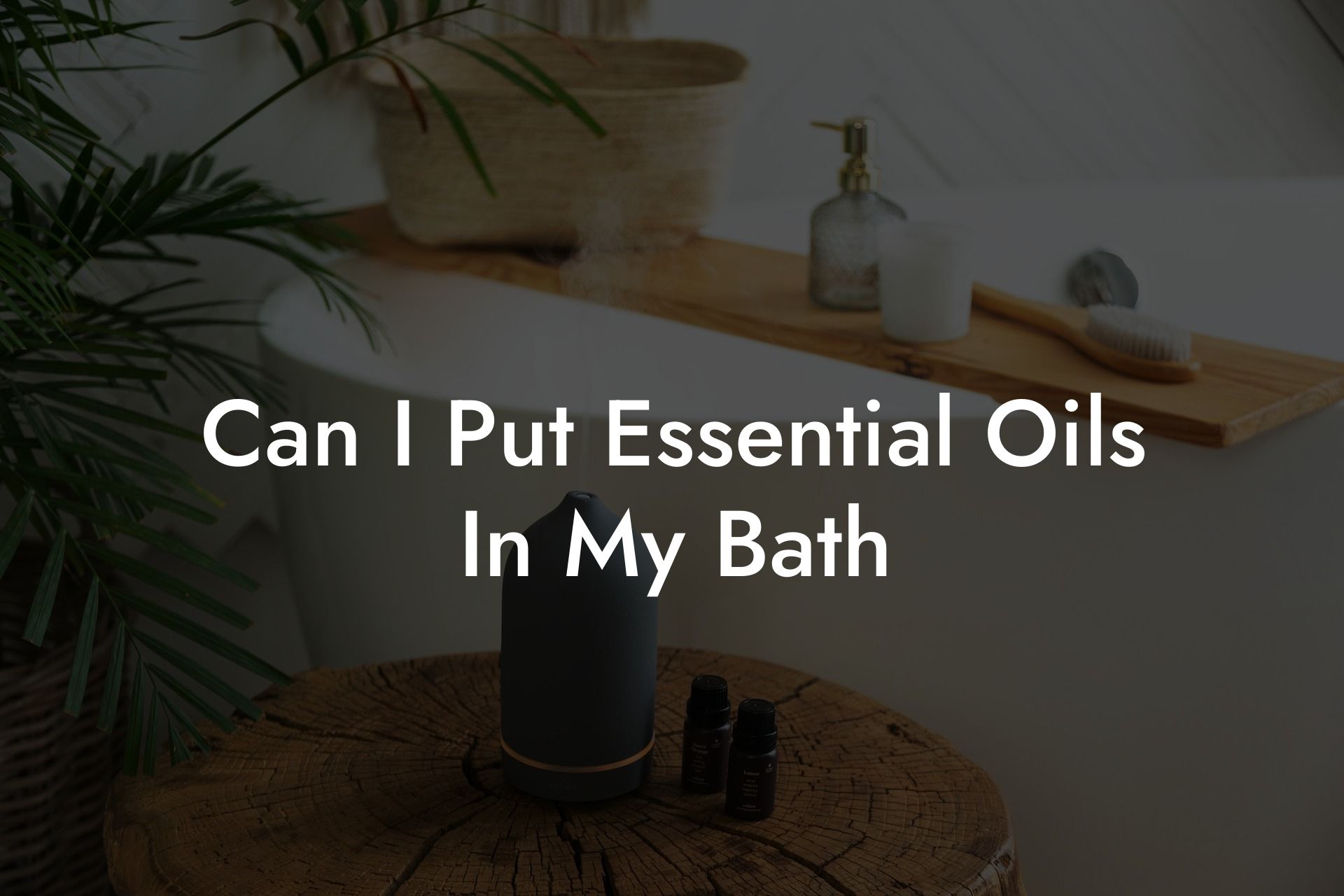Ever wondered how to take your bath experience to the next level of relaxation? Essential oils might just become your new best friend. In this article, we will explore the benefits and correct methods of using essential oils in a bath for an ultimately soothing and rejuvenating experience.
Table of Contents
Why Add Essential Oils to Your Bath?
Essential oils possess a multitude of health and wellness benefits, especially when used in a bath. Some notable advantages include:
- Relaxation and stress relief
- Enhancement of your mood
- Improved sleep quality
- Boosted immune system
- Pain relief
- Improved skin health
Choosing the Right Essential Oils for Your Bath
One of the most important aspects of using essential oils in a bath is selecting the appropriate oils based on your desired outcome. Here are some popular essential oils and their properties:
- Lavender: Calming, stress-relieving, and sleep-promoting
- Eucalyptus: Decongestant, immune-boosting, and energizing
- Chamomile: Relaxing, soothing, and sleep-promoting
- Rosemary: Stimulating, focus-enhancing, and pain-relieving
- Peppermint: Cooling, invigorating, and headache-relieving
How to Add Essential Oils to Your Bath Safely
It’s essential to use essential oils safely to avoid skin irritation and other complications. Follow these easy steps:
- Select high-quality oils: Choose pure, unadulterated essential oils from a reliable source, such as Oshu Oils.
- Stick to the recommended dosage: The general rule of thumb is to use 5-10 drops of essential oil per bath. However, always follow the guidelines provided by the essential oil’s manufacturer.
- Use a carrier oil: Essential oils are lipid-soluble, meaning they don’t mix well with water. To help them disperse through the bathwater, mix your chosen essential oil with a carrier oil (such as sweet almond oil, coconut oil, or jojoba oil) before adding it to the bath. Alternatively, you can use a bath emulsifier designed for essential oils.
- Add the oils after filling the bath: Wait until your bath is filled to your desired level before adding the essential oil and carrier oil mixture. This ensures that the essential oils don’t evaporate too quickly.
- Don’t overheat the water: Excessively hot bathwater can cause skin irritation, increase the chances of dizziness, and deplete the skin’s natural oils. Ensure your bathwater is at a comfortable temperature, ideally around 98℉ (37℃).
Can I Put Essential Oils In My Bath Example:
Imagine it’s been a long and tiring day, and you feel both physically and mentally drained. You decide to create a relaxing bath experience to help you unwind. You choose lavender essential oil for its calming properties and mix a recommended 10 drops with a tablespoon of sweet almond oil. Once your bath is filled, you gently pour the mixture into the water, allowing the soothing aroma of lavender to fill the room. As you soak in the warm water, you let the tranquility wash over you, paving the way for a great night’s sleep.
Now that you know how to indulge in a divine bath experience, it’s time for a little self-pampering. Don’t be shy to experiment with different essential oils and find the right blend for your unique needs. Share this article with your friends and family who would love to know the benefits and techniques of adding essential oils to their baths. Be sure to explore our other essential oil guides on Oshu Oils, and immerse yourself in the enchanting world of aromacology. Dive into the luxurious range of essential oils offered by Oshu Oils and transform your bath into a tranquil oasis.





















